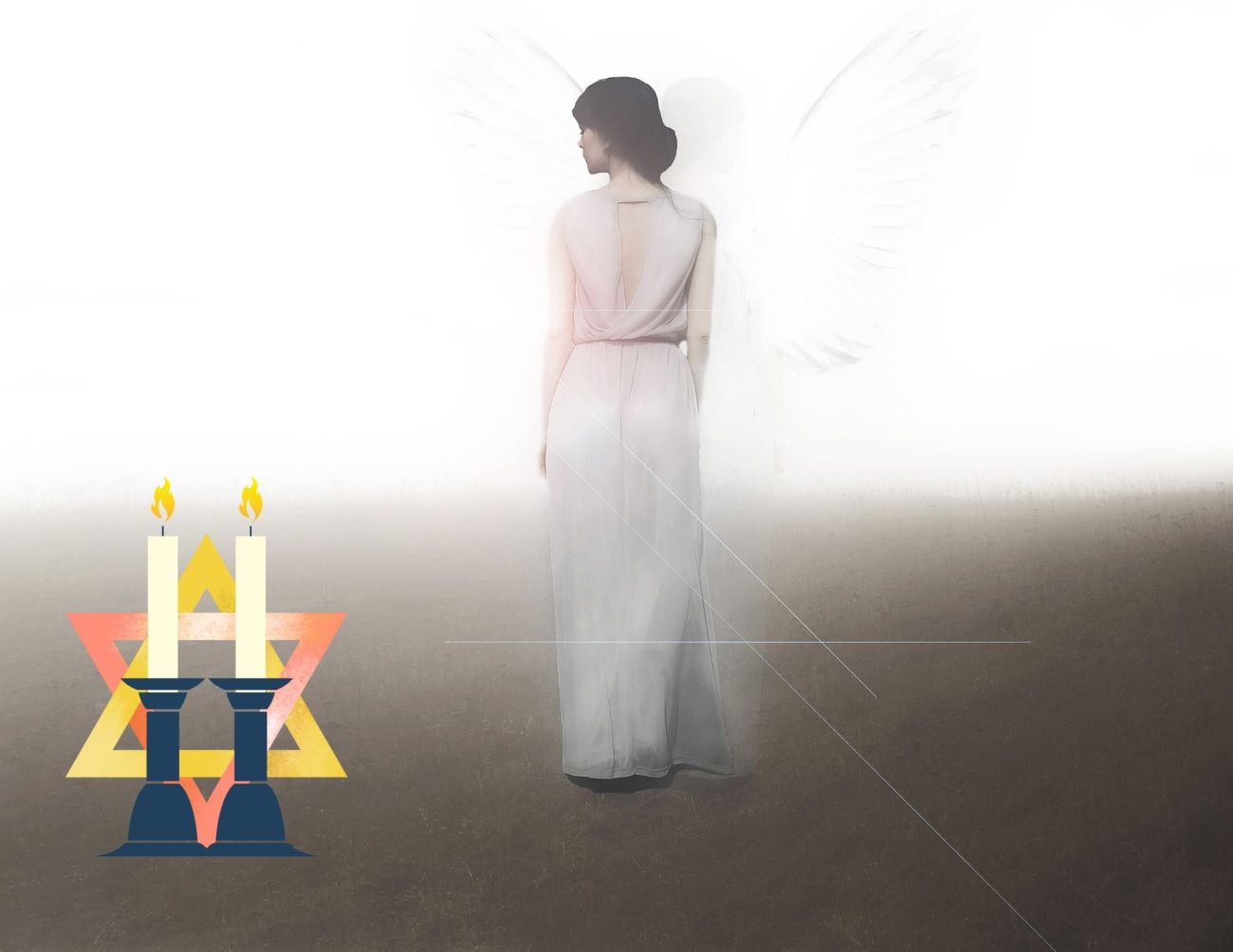by Matty Mozor
This Shabbos past, my family was blessed by a visit from a Shabbos angel, in the flesh.
On Friday evening, I had fallen asleep in my den (studying Torah, of course). I was awakened at around 6AM by the slow and cautious bark of my sheepdog, not 10 feet ( 2m) away. She was crouched down in the adjacent living room barking across the fireplace hearth. It was dusk and still fairly dark in the house. I got up to investigate and glimpsed what I thought was my mother’s-in-law cat. I checked her room to see if the door was open and it was not. I returned to the living to see that it was not a cat, but a senior aged woman, asleep on the floor next to the fireplace. The woman was well dressed in a hat and coat. She had pulled a small blanket over her from the couch.
I quickly checked around the area to see if there was someone else with her, called for my wife, and checked the woman to see if she was hurt or sick. I also called the police to report an “intruder”. All the while, the woman laid peacefully on the floor. My wife placed pillow under her head and a warm blanket over her. She did not speak English. I asked her, in Spanish, her name. She replied Victoria. I asked her where she lived and why she was there. She told me she “lived here”. I saw the police arrive and went out to meet them to let them know “the intruder”, Victoria, was not a threat, and likely had some memory issues or other medical problem. Meanwhile, my wife comforted our guest. She had immediately seen Victoria as an angel, not the “intruder” I initially described and interacted with her with love and reverence. I realized then that I had two angels in my home.
The two young police officers tried to determine who Victoria was and how she ended up joining us in my home. They did not speak Spanish (my Spanish is very rudimentary, so I could not help other than offering the use of the translating service I use at the hospital where I work). Shortly, an ambulance arrived, as well as an officer from an adjacent town who did speak Spanish. Victoria had a cell phone on her that was switched off. The officers were able to start it and with Victoria’s help, unlock it. They called the last number that received, and it was Victoria’s son.
The son explained that he had reported her missing the day before and that she had advanced Alzheimer’s disease. Victoria is 80 years old. They live 10 miles away in Peekskill, NY! They arranged to reunite at the local police station.
We live in a small community located about 35 miles (60km) from New York City called Croton-On-Hudson. Our house sits on cul-de-sac, at the top of steep hill, and is 150ft (45m) from the end of the road, down a winding brick path. In the 30 years we have lived there, we have never locked our front door. Had we kept our front door locked (as normal folks do), with temperatures that evening in the low 30’s F (-1C), Victoria may have gotten sick or worse.
I received so many messages from this event. My 90 year old mother in law has Alzheimer’s as well. She does not wander (yet), but now, I must start to lock the door, to help make sure she does not wander off in the future. We can lock our doors, but not lock our hearts to those who need help. Parasha Re’eh says “open your hand to them and lend whatever is lacking in them”. (Thank you, Rabbi Catriel, for this) When I help someone needier than myself, I am also being helped. I may be giving, but I am receiving so much more. I am receiving the gift of purpose. I am grateful for this experience. I am grateful and humbled by my unconditionally loving wife, for the kind police officers who responded, and for knowing that Victoria’s family experienced an end to worry and sense of relief upon her safe return.
Baruch HaShem








Ohr HaChaim Yomi – Emor